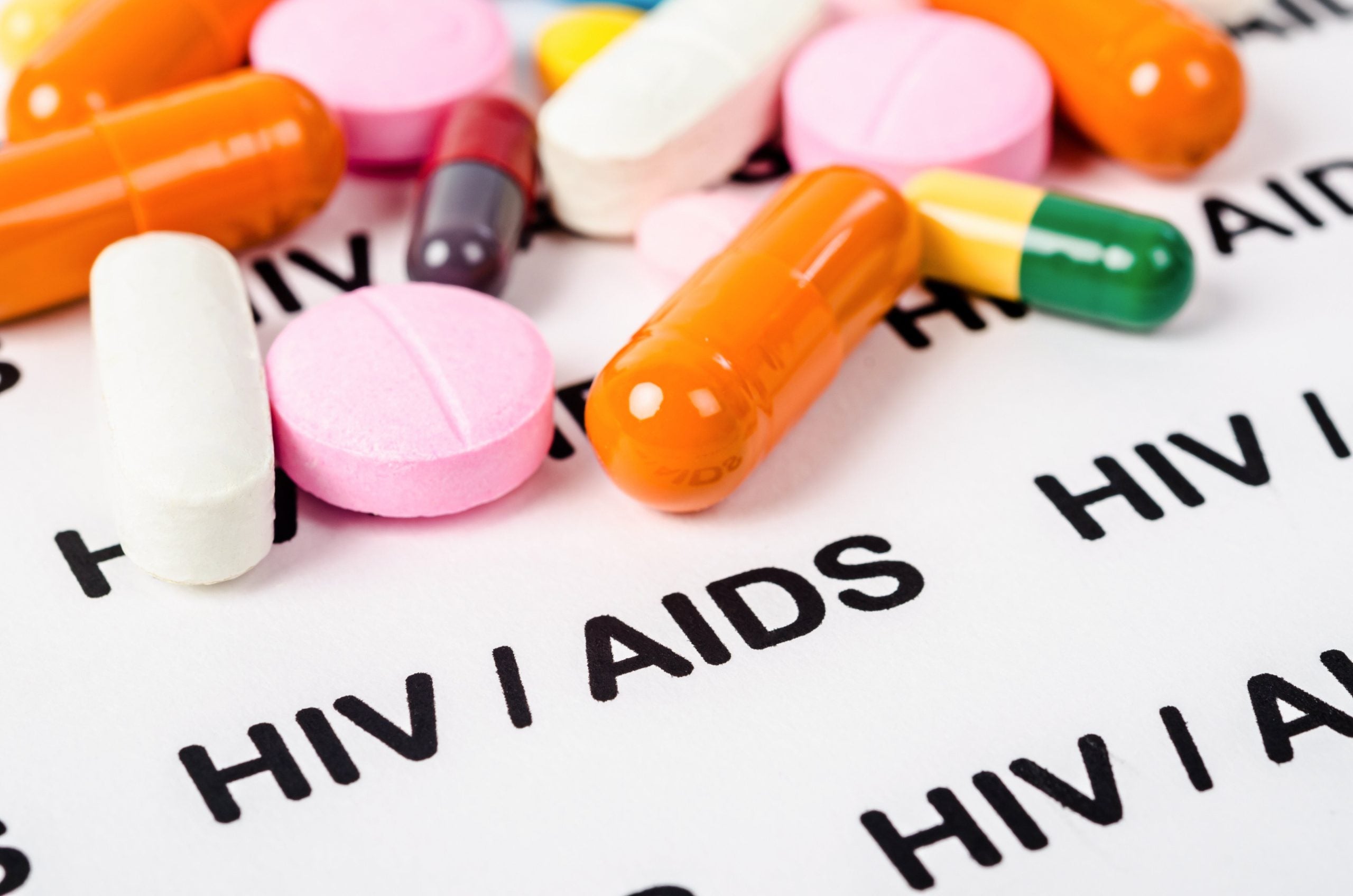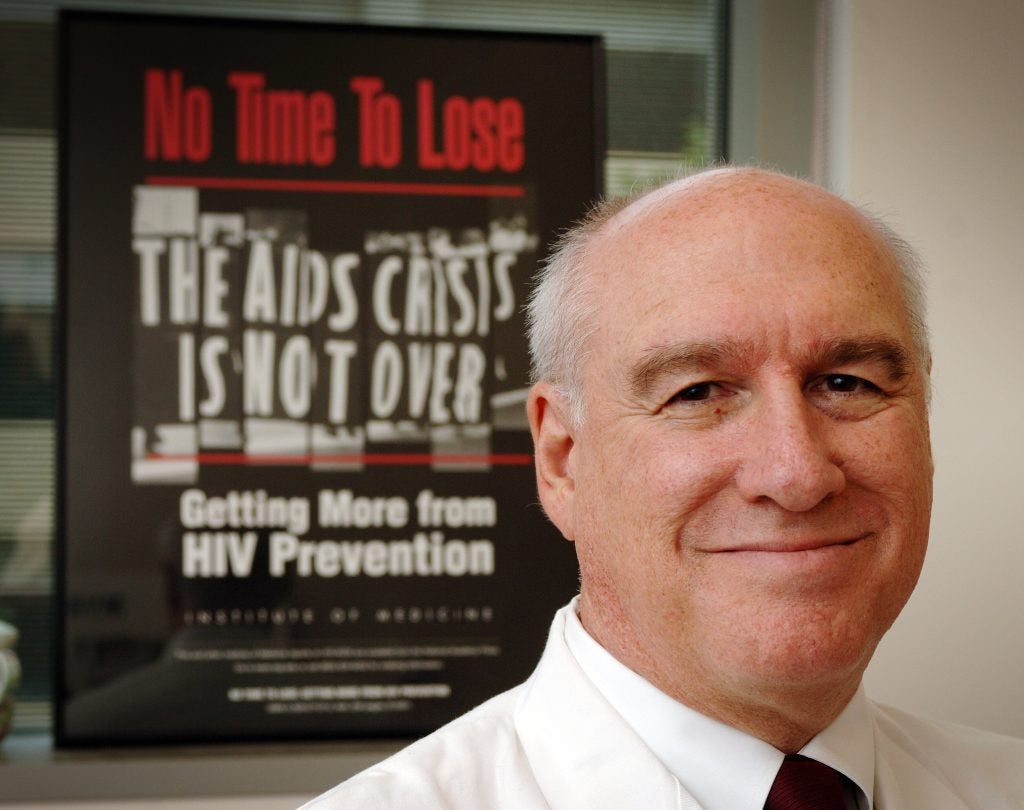
The year 2023 started with disappointing news for the field of human immunodeficiency virus (HIV) research after Janssen’s Phase III vaccine trial failed.
This setback has had a major impact on the industry and emphasised the need for better treatment and prevention against the virus while researchers continue to push for a vaccine.

Discover B2B Marketing That Performs
Combine business intelligence and editorial excellence to reach engaged professionals across 36 leading media platforms.
Dr. Myron Cohen, head of the HIV Prevention Trials Network says there are four areas of research which are being investigated in HIV; prevention, cure, treatment and treating diseases impacted by HIV.
“Last century, HIV was a death sentence and then all of a sudden, you basically live a normal life. It’s a disease that we can manage as well as other diseases with one pill a day,” says Cohen. “The question is can we do better than one pill a day? Resistance forces us to be vigilant, so we have to keep making new drugs to try and stay ahead of resistance.”
According to Dr. Roger Sanders, an infectious diseases professor at the University of Amsterdam, each stage of HIV vaccine development is important.
“There are so many things to consider,” explains Sanders. “There’s a number of reasons why it’s so difficult to make a vaccine and one is the viral diversity and the second is structural or chemical aspects of the envelope protein that is so crucial for vaccines. In terms of a cure, the big problem is stems. HIV hides in cells that are difficult to reach with medication and remain dormant in those cells for a while. When treatment is stopped. It just purges from those sanctuary sites again.”

US Tariffs are shifting - will you react or anticipate?
Don’t let policy changes catch you off guard. Stay proactive with real-time data and expert analysis.
By GlobalDataAs the world continues to wait for a vaccine, it is vital that development continues in all the other stages. According to GlobalData’s Pharmaceutical Intelligence Centre, there are 921 ongoing and planned clinical trials in HIV. GlobalData is the parent company of Clinical Trials Arena.
Trials are looking to potentially cure at early stage
One issue for HIV research is HIV latency – the process by which host cells can harbour full-length HIV proviruses that are replication-competent but transcriptionally inactive. The lack of transcriptional activity means that latent HIV can escape host immunosurveillance and makes it insensitive to antiretroviral therapy (ART).
The Thai Red Cross AIDS Research Centre is trialling ImmunityBio’s pipeline candidate N-803 (nogapendekin alfa) in a Phase II trial (NCT04505501). The research centre is investigating how the candidate reduces HIV persistence in lymph nodes by N-803 in acute HIV infection.

The randomised, unblinded, controlled trial will investigate the safety, tolerability, and immunomodulation effect of combining N-803 with ART. The plan was to enrol 15 patients in the study, 10 in the experimental group and five in the control group. The experimental group will receive N-803 at 6mcg/kg every three weeks for three doses plus ART. The control group will receive ART alone.
Associate director of infectious diseases at GlobalData, Fiona Chisholm says: “HIV latency represents a major obstacle to the eradication of the virus from infected individuals. N-803 has been proposed as a latency-reversing agent as it has been shown to activate latently infected cells and prime resting CD4+ T cells for CD8+ T cell recognition in vitro and ex vivo.”
Cohen says that trialling a candidate like this presents a risk because preclinical models of the IL-15 mechanism of action (MoA) actually worsened the infection, but he says there is hope that modifications made in N-803 can lead to improvement.
“IL-15 in some papers with animals increases rather than decreases the viral load,” says Cohen. “But in papers published about N-803 which is a modification of IL-15 cytokine, they hypothesise that N-803 is going to reduce the absolute amount of DNA that the cells hold which would be valuable downstream if you’re trying to cure.”
A TB vaccine would be hugely important for HIV patients
People living with HIV are more likely than others to become sick with tuberculosis (TB). This is because HIV weakens the immune system, which makes it harder for the body to fight TB germs. Untreated latent TB infection is more likely to advance to TB disease in people with HIV than in people without HIV.
As a result, ongoing trials are investigating TB vaccines in patients both with and without HIV to ensure they are just as efficacious.
There is currently only one prophylactic tuberculosis (TB) vaccine on the market, the Bacillus Calmette-Guérin (BCG) vaccine, which was developed around 100 years ago and is considered to have limited efficacy, especially in older populations.
The HIV Vaccine Trials Network and National Institute of Allergy and Infectious Diseases are trialling MTBVAC-01 in patients with and without HIV living in South Africa. The Phase IIa trial (NCT05947890) is investigating the safety and immunogenicity of the vaccine candidate and primary completion is scheduled for November 2024.
The study plans to enrol 276 patients and it will be conducted in two parts, A and B. Part A will include two cohorts; each cohort will have four groups. Part B will have one cohort which will also have four groups.
In the first two cohorts, participants will be randomised to receive MTBVAC or BCG. Enrolment of the third cohort will proceed if safety criteria are met for the first two cohorts with another randomisation between MTBVAC and BCG.
“There is an urgent need for novel TB vaccines that confer higher levels of protection across all age groups, and this is particularly the case for those living with HIV,” Chisholm says. “MTBVAC-01 has demonstrated positive safety, efficacy and immunogenicity data in preclinical studies and clinical trials.”
“TB and HIV often go together and there are several important aspects. It is very important to see whether TB vaccines work as well in HIV-positive individuals as they do in the general population,” Sanders adds.
Longer-acting, less resistant treatment is needed in HIV
ST Pharm’s Pirmitegravir is a first-in-class potent HIV-1 allosteric integrase inhibitor (ALLINI) that targets the noncatalytic sites of the viral integrase and interferes with the integrase-viral RNA interaction during viral maturation.
The novel MoA could help in the fight against resistance and could be longer lasting than current therapies which would improve the quality of life for HIV patients.
The Phase IIa, randomised, double-blinded, placebo-controlled, study (NCT05869643) is investigating the antiviral effect, safety, tolerability, and pharmacokinetics of pirmitegravir in treatment-naïve adults.
“This was the first therapy with an ALLINI mechanism of action to reach clinical development,” Chisholm says. “In Phase I, pirmitegravir was shown to be well tolerated with a consistent pharmacokinetic profile supporting once-daily dosing. With Phase II data eagerly anticipated, pirmitegravir will be one to watch in 2024.”

Cohen says that this could be a particularly important advancement if efficacious but lots of questions remain. “We are always searching for longer-acting drugs that are less susceptible to resistance. These are some of the most important drugs on the shelf for HIV, integrase inhibitors,” Cohen says. “This candidate’s success depends on a few things, its safety, its potency, how frequently it going to be administered and how long it will last. The other question is what will it be combined with because it certainly won’t be used alone.”
A vaccine is not coming soon but it could be on the way
In January 2023, data showed the vaccine candidate in development by Janssen, failed to stop contraction of the virus more than the placebo group. As a result, the Phase III Mosiaco trial which enrolled 3,900 volunteers in multiple countries, was terminated.
Now, all HIV vaccines in development are in early-stage trials and despite continued difficulties in vaccine development, Sanders is holding out hope for some of these pipeline candidates.
“There’s quite a lot of optimism at the moment in the HIV vaccine field in the earlier phase. There are quite some positive results from several Phase I studies on trying to induce broadly neutralizing antibodies,” Sanders explains. “All the vaccines that failed so far have not been able to use neutralising antibodies, let alone broadly neutralising antibodies. But there’s very nice progress that earlier studies.”
Cohen disagrees however, saying that despite decades of research, the field is no closer to a vaccine. “We would love to have a vaccine but we don’t know how to make a vaccine, it’s been 40 years and we really don’t know how to make a vaccine,” Cohen explains.
Whatever happens with the vaccine pipeline, the next few years of research will continue in the fight against resistance. “We have to keep making new drugs to try and stay ahead of resistance,” Cohen adds.
“The virus isn’t going to go away, there are 37million people living with it and we have to keep going. We’d love to cure this infection, but there are a lot of chronic infections we’ve never cured like herpes. The quest goes on for a cure aggressively in a lot of different ways but it’s a long slog and no one’s going to be cured of HIV with a pill in the next few years.”





